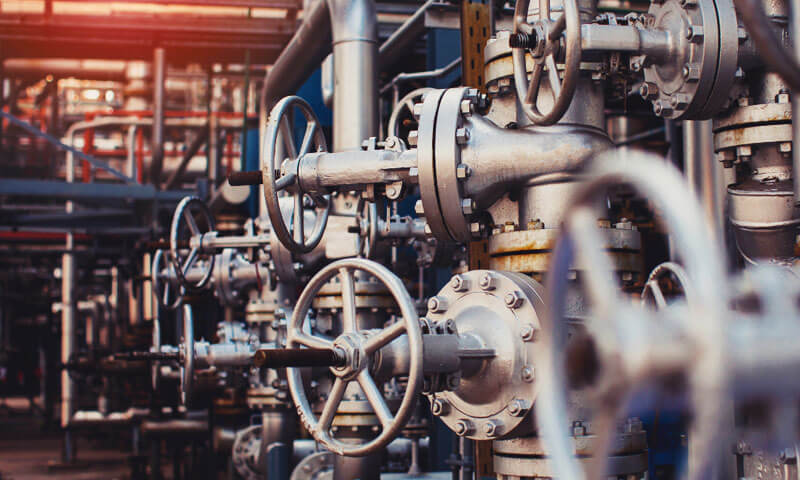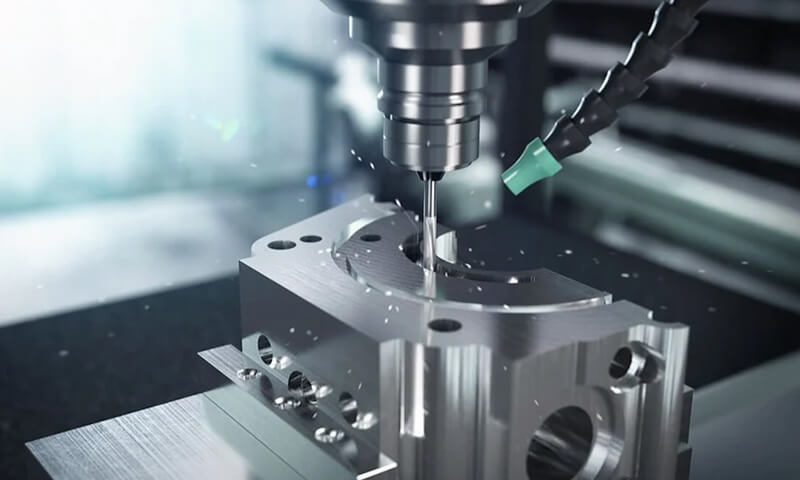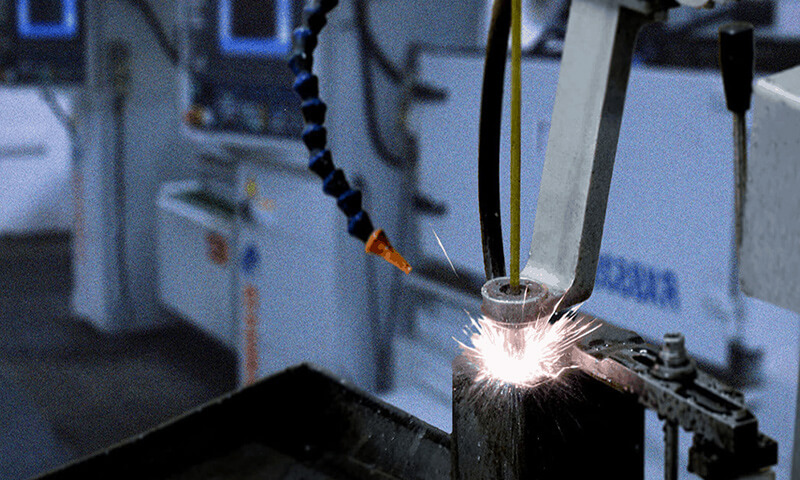1. Įvadas
Lydinys 904-6% MO (UNS N08925, W. Nr. 1.4529) is a high-performance super austenitic stainless steel that excels in extreme conditions,
offering enhanced resistance to corrosion and remarkable durability in high-temperature environments.
Its upgraded composition, which includes a molybdenum content of at least 6% and higher nitrogen content, significantly improves its resistance to aggressive environments.
This alloy has become indispensable in industries ranging from chemical processing to marine engineering,
where materials must endure continuous exposure to corrosive agents and high temperatures.
The key to its effectiveness lies in the higher molybdenum content, which bolsters its resistance to crevice and pitting corrosion.
Be to, the increased nitrogen content further enhances the alloy’s strength and overall performance.
These enhancements make Alloy 904-6% Mo an ideal material for critical applications requiring both durability and longevity.
2. What is Alloy 904-6% MO?
Lydinys 904-6% Mo is a super austenitic stainless steel, similar to Alloy 904L, but with an increased molybdenum content and higher nitrogen levels.
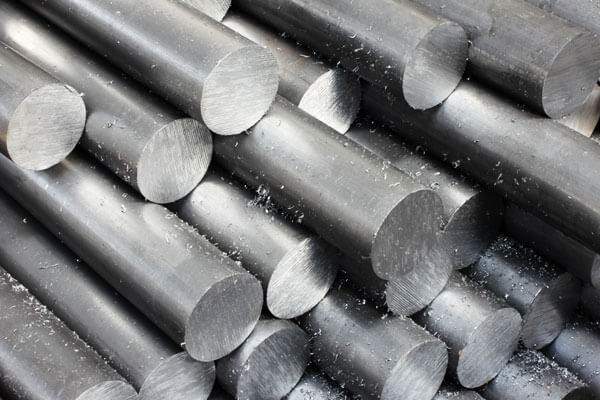
This combination elevates its ability to resist corrosion, particularly in aggressive and corrosive environments. The material’s typical chemical composition includes:
- Nikelis (Į): 25%
- Chromas (Kr): 20%
- Molibdenas (MO): 6.3%
- Vario (Cu): 0.9%
- Manganas (Mn): 1.5%
- Silicis (Ir): 0.5%
- Azotas (N): 0.20%
- Anglies (C): 0.02%
- Lygintuvas (Fe): Pusiausvyra
The significant increase in molibdenas ir azotas helps improve the alloy’s resistance to chloride-induced stress corrosion cracking, duobė,
ir įtrūkimų korozija, ensuring that it performs well in environments typically hostile to standard stainless steel.
Compared to 904L, which has a molybdenum content of about 4%, Lydinys 904-6% MO shows an improvement in localized corrosion resistance—particularly in chloride-rich environments—
making it ideal for critical industries like chemical manufacturing, Jūrų inžinerija, ir net kosmoso.
3. Physical Properties of Alloy 904-6% MO
Žemiau, we examine the key physical properties of Alloy 904-6% Mo that contribute to its performance and reliability:
Tankis
- Vertė: 8100 kg/m³
- Reikšmė: Lydinys 904-6% Mo has a relatively high density compared to other materials, such as aluminum or titanium.
This density contributes to its durability and structural stability, making it ideal for applications where robustness is critical, tokių kaip Jūrų inžinerija ir Cheminis apdorojimas.
Tačiau, its density is lower than that of many other high-strength alloys, making it a good balance between strength and weight.
Young’s Modulus
- Vertė: 195 GPA
- Reikšmė: Young’s Modulus refers to the stiffness of the material, or its ability to resist deformation under stress.
With a value of 195 GPA, Lydinys 904-6% Mo demonstrates high stiffness, which ensures its integrity and ability to withstand mechanical stress without significant deformation.
This is especially important in struktūriniai komponentai that must maintain shape and strength under high loads, such as those used in aviacijos ir kosmoso ir energijos generavimas.
Šilumos laidumas
- Vertė: 13 W/(m·K)
- Reikšmė: The Šilumos laidumas of Alloy 904-6% Mo is relatively low compared to materials like copper, but still high enough to perform well in heat transfer applications.
Its ability to conduct heat efficiently makes it an excellent choice for Šilumokaičiai and other components exposed to Aukšta temperatūra.
In industrial applications, tokių kaip elektrinės, this thermal conductivity ensures that the alloy can handle and dissipate heat without compromising its structural integrity.
Šilumos išsiplėtimo koeficientas
- Vertė: 0.000016 per °C
- Reikšmė: The Šilumos išsiplėtimo koeficientas (Cte) measures how much a material expands or contracts with temperature changes.
Lydinys 904-6% Mo has a relatively low CTE, which means it maintains its shape well under temperature variations.
This property is particularly beneficial for applications in environments where temperature fluctuations are frequent,
tokių kaip Cheminiai reaktoriai arba offshore structures, as it minimizes the risk of thermal stress and component failure.
Magnetinės savybės
- Non-Magnetic: Lydinys 904-6% Mo is non-magnetic, which is a key advantage in applications where magnetic interference needs to be minimized.
This property makes the alloy suitable for use in environments like Medicinos prietaisai, electronic components, ir aviacijos ir kosmoso,
where magnetic properties could disrupt operation or affect the performance of sensitive equipment.
Kietumas
- Kietumas (HV10): 180 - 220
- Reikšmė: The hardness of Alloy 904-6% MO, measured by the Vickers hardness test, indicates its resistance to indentation Ir dėvėti.
With a hardness range of 180 į 220 HV10, it strikes a balance between being ductile enough to handle stress without cracking and hard enough to resist wear in harsh conditions.
This makes it suitable for high-performance components used in aviacijos ir kosmoso, Jūrų, ir Cheminis apdorojimas pramonės šakos.
4. Key Features of Alloy 904-6% MO
Lydinys 904-6% MO (UNS N08925, W. Nr. 1.4529) stands out for its exceptional performance in harsh environments.
By enhancing the properties of standard austenitic stainless steels with higher levels of molybdenum and nitrogen,
this alloy delivers superior corrosion resistance, Aukštos temperatūros stabilumas, and impressive mechanical properties. Let’s break down the key features of Alloy 904-6% MO:
Atsparumas korozijai
One of the most remarkable features of Alloy 904-6% Mo is its Išskirtinis atsparumas korozijai.
This alloy is specifically engineered for environments where other materials would fail due to corrosion.
The high molybdenum content (6.3%) boosts its ability to resist duobė ir įtrūkimų korozija, which are common in environments exposed to chloride-rich media, such as seawater or chemicals.
- Chlorido streso korozijos krekingas (SCC): The addition of molybdenum significantly enhances the alloy’s resistance to Chlorido streso korozijos krekingas,
which is a major concern in industries like chemical processing and marine engineering. - Sulfuric and Phosphoric Acid Resistance: The alloy’s resistance to aggressive chemicals, such as sulfuric and phosphoric acids, todėl idealiai tinka Cheminiai reaktoriai,
Šilumokaičiai, ir Sandėliavimo rezervuarai where these substances are handled in corrosive environments. - Bendroji korozija: Lydinys 904-6% Mo excels in resisting general corrosion caused by a wide range of chemicals and environmental factors,
extending the service life of equipment used in aggressive environments.
Aukštos temperatūros našumas
Lydinys 904-6% Mo offers exceptional Aukštos temperatūros našumas, maintaining its mechanical properties and strength even in elevated temperature environments.
- Oxidation Resistance: The alloy exhibits superior Atsparumas oksidacijai Aukštos temperatūros aplinkoje, where other materials may degrade or lose strength.
It is particularly effective in high-temperature acidic chloride solutions, such as those found in pulp and paper mills. - Mechanical Property Retention: This alloy retains its strength and Mechaninės savybės Esant pakilusi temperatūrai.
Whether in a chemical plant, energijos generavimas, arba aerospace applications,
Lydinys 904-6% Mo provides reliability and long-term performance in environments subject to both heat and aggressive chemicals.
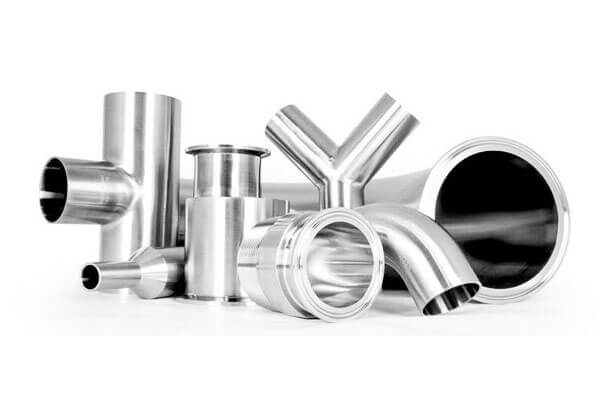
Įbrėžimas ir plyšio atsparumas korozijai
The molibdenas ir azotas content of Alloy 904-6% Mo plays a pivotal role in enhancing its ability to resist duobė ir įtrūkimų korozija-
two forms of localized corrosion that occur in areas where the material is exposed to stagnant or confined environments, such as cracks or joints.
- Molybdenum’s Role: Molybdenum is essential for improving the alloy’s ability to withstand localized corrosion in aggressive chemical environments,
making it perfect for applications where other materials would quickly corrode. - Resistance in Harsh Chemical Environments: Whether exposed to chloride solutions, Jūros vanduo, or industrial chemicals,
Lydinys 904-6% Mo’s resistance to these forms of corrosion ensures that it will endure in environments with high levels of contamination.
Patvarumas ir ilgaamžiškumas
The combined effects of high molybdenum, high nitrogen, ir Nikelis result in an alloy that offers improved durability ir longer service life even in the most extreme conditions.
Lydinys 904-6% Mo resists degradation over time, which reduces the need for frequent replacements and maintenance, leading to significant cost savings in the long run.
- Reduced Maintenance Costs: Lydinys resilience to corrosion, Aukšta temperatūra, and mechanical stress
makes it an excellent investment for applications where maintenance costs are a concern. - Tarnavimo laikas: The alloy’s ability to withstand continuous exposure to aggressive media ir
extreme conditions extend the life of components, reducing the need for downtime and increasing operational efficiency.
Mechaninės savybės
In addition to its superior corrosion resistance, Lydinys 904-6% Mo boasts excellent Mechaninės savybės, which make it highly versatile for demanding applications:
- Ultra-Tensile Strength (UTS): Su a UTS of 700 MPA, Lydinys 904-6% Mo is strong enough to handle demanding mechanical stresses.
This feature makes it a reliable material for use in heavy-duty applications in energijos generavimas, Jūrų inžinerija, ir Cheminis apdorojimas. - Derliaus stiprumas: Su a yield strength of 320 MPA, the alloy exhibits the ability to withstand significant loads without permanent deformation,
ensuring the integrity of structural components over time. - Pailgėjimas: Jo 35% pailgėjimas indicates that Alloy 904-6% Mo maintains its form under tensile stress,
offering flexibility in applications that require some degree of deformation without failure. - Kietumas: The alloy has a hardness range of 180-220 HV10, which provides resistance to wear and mechanical degradation,
making it suitable for components that are subject to friction and abrasion.
Processing Properties
While Alloy 904-6% Mo offers exceptional performance in service, it does present some challenges in terms of fabrication.
Tačiau, with the right processing techniques, these challenges can be overcome to achieve excellent results.
- Suvirinimas: Lydinys 904-6% Mo can be welded using standard austenitic stainless steel welding processes.
It is recommended to use nickel-based filler materials to ensure strong weld joints.
The high molybdenum content may require specialized techniques, especially when joining thicker sections. - Apdirbimas: The alloy is more challenging to machine compared to standard stainless steel due to its work-hardening characteristics.
Careful attention to tooling and processing parameters is necessary to achieve the desired results.
Tačiau, with proper tools and techniques, excellent machining results can be achieved. - Hot Working: The alloy can be hot worked in the temperature range of 1200 – 900°C.
Afterward, tirpalo atkaitinimas adresu 1170° C. followed by Vandens gesinimas is recommended to restore the material’s optimum mechanical properties.
5. Applications of Alloy 904-6% MO
Lydinys 904-6% Mo’s unique properties make it an ideal choice for a variety of demanding industries:
Chemical and Petrochemical Industry
Į chemical industry, Lydinys 904-6% Mo is commonly used in the construction of reaktoriai, Šilumokaičiai, ir Sandėliavimo rezervuarai.
These components must resist Sieros rūgštis, Fosforo rūgštis, and other corrosive media,
particularly in environments containing Chloridai ir contaminants that would otherwise accelerate corrosion.
Lydinys 904-6% Mo is also ideal for handling aggressive chemicals in naftos chemija procesai, where high temperature and pressure are prevalent.
Taikymas jūroje ir atviroje jūroje
Lydinys 904-6% Mo is highly effective in Jūrų paraiškos, įskaitant offshore oil rigs ir marine vessels.
In environments with high salinity and exposure to seawater, jo resistance to chloride-induced stress corrosion ir duobė makes it a preferred choice for seawater systems, Siurbliai, and other critical components.
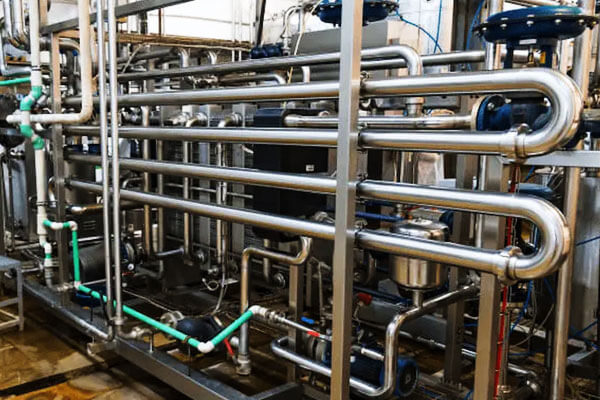
Aerospace and High-Temperature Applications
With its ability to maintain strength and resist oxidation at high temperatures, Lydinys 904-6% Mo is well-suited for use in aviacijos ir kosmoso and other high-performance engineering applications.
Orlaivių komponentai exposed to extreme conditions, such as turbine blades and heat exchangers, benefit from this alloy’s high Atsparumas oksidacijai ir Šiluminis stabilumas.
Pharmaceutical and Food Processing
Due to its sanitary properties ir korozija pasipriešinimas, Lydinys 904-6% Mo is often used in Farmacija ir food processing industries.
It can withstand the harsh conditions of sterilization processes and the demanding environments found in clean rooms ir processing equipment, ensuring product quality and safety.
Energijos generavimas
Į power generation plants, components exposed to both Aukšta temperatūra ir Agresyvios cheminės medžiagos benefit from Alloy 904-6% Mo’s high-temperature resistance ir atsparumas korozijai.
Equipment such as katilai, turbines, ir Šilumokaičiai made from this alloy exhibit extended service life and reduced maintenance costs.
Desalination Plants
Į seawater desalination plants, where equipment is constantly exposed to chloride-rich environments,
Lydinys 904-6% Mo provides the necessary chloride stress corrosion resistance to ensure that equipment
tokių kaip evaporators ir vamzdynų sistemos continue to perform effectively without premature failure.
6. Advantages of Alloy 904-6% MO
- Padidėjęs atsparumas korozijai: Superior to standard stainless steels, especially in challenging environments.
- Išplėstinis tarnavimo gyvenimas: Its durability in harsh environments reduces maintenance and downtime, ensuring long-term performance.
- High Strength and Resistance to High Temperatures: Maintains mechanical properties in elevated temperatures, making it ideal for demanding applications.
- Reduced Maintenance and Repair Costs: With its long service life and durability, Lydinys 904-6% Mo reduces the need for frequent replacements and repairs.
7. Iššūkiai ir svarstymai
While Alloy 904-6% MO (UNS N08925, W. Nr. 1.4529) offers superior performance in demanding applications, several factors need to be carefully considered when selecting this material.
These challenges primarily stem from the alloy’s cost, fabrication requirements, and potential limitations in specific applications.
Žemiau, we discuss these considerations in greater detail.
Kaina
One of the primary challenges of Alloy 904-6% Mo is its higher cost compared to standard stainless steel.
The increased molybdenum content (6.3%) and other alloying elements such as nitrogen contribute to the alloy’s superior performance but also raise its production costs.
- Material Costs: Molybdenum is a relatively expensive material, and its addition increases the overall price of the alloy.
Dėl to, projects that require large quantities of this alloy can face higher initial material costs. - Ekonominiai sumetimai: While the upfront cost of Alloy 904-6% Mo may be higher than that of other stainless steels,
the long-term benefits of enhanced durability and reduced maintenance costs in harsh environments may offset the initial investment.
Industries that require high-performance, corrosion-resistant materials often find that the alloy’s longevity and resistance to degradation make it cost-effective over time.
Nepaisant to, when choosing the right material, it is crucial to weigh the ekonominis efektyvumas against the long-term performance nauda.
Kai kuriais atvejais, a cheaper material may require more frequent replacements or maintenance, which could result in higher total lifecycle costs.
Gaminimas
The processing of Alloy 904-6% Mo can present certain challenges due to its work-hardening characteristics and the complexity of its composition.
As an austenitic stainless steel, it requires specialized techniques during fabrication to achieve desired results.
- Suvirinimas: While Alloy 904-6% Mo can be welded using standard austenitic stainless steel welding techniques, special considerations must be made to account for its molybdenum content.
The use of nickel-based filler materials is recommended to ensure a strong and durable weld.
Be to, care must be taken during the welding process to avoid issues such as karštas įtrūkimas ir iškraipymas, which can occur due to the high molybdenum content. - Apdirbimas: Lydinys 904-6% Mo can be challenging to machine because it tends to work hard during processing.
Dėl to, machining operations such as drilling, frezavimas, ir posūkis may require the use of specialized tools,
cutting fluids, and slower processing speeds to prevent tool wear and achieve optimal results.
Be to, high-speed machining is not always recommended due to the material’s tendency to harden quickly, which can increase tool wear and decrease the efficiency of the process. - Forming and Bending: Forming and bending of Alloy 904-6% Mo can also be difficult, as its strength and hardness increase as the material is deformed.
Special tooling and processes must be employed to avoid cracking or breaking during Šaltas darbas.

To address these fabrication challenges, careful planning and the use of the correct processing parameters ir tools yra būtini.
Depending on the complexity of the desired component, this alloy may require more extensive machining time arba specialized equipment, contributing to additional fabrication costs.
Applications Limitations
While Alloy 904-6% Mo excels in a variety of harsh environments, it may not be the best fit for all applications. Here are some potential limitations to consider:
- Ultra-High Mechanical Strength: Lydinys 904-6% Mo is designed for atsparumas korozijai ir Aukštos temperatūros našumas,
but it is not necessarily the best choice when extreme mechanical strength is required.
For applications where ultra-high tensile strength arba resistance to impact loading is crucial (Pvz., heavy machinery components or structural elements in high-stress environments), alternative materials like titano lydiniai arba high-strength steels may be more suitable.
Lydinys 904-6% Mo offers excellent stiprybė for most applications, but its strength might not be sufficient for extremely demanding structural applications where other materials are more appropriate. - Kaina vs. Performance Balance: While Alloy 904-6% Mo offers superior corrosion resistance and high-temperature stability,
it may not always provide the best cost-to-performance ratio for applications where only moderate corrosion resistance is required.
In such cases, lower-cost materials like 304 arba 316 Nerūdijantis plienas may suffice, without the need for the enhanced performance offered by Alloy 904-6% MO.
Careful evaluation of the specific application requirements—such as exposure to harsh chemicals,
Aukšta temperatūra, or seawater—is necessary to justify the choice of Alloy 904-6% MO. - Cold-Forming Limitations: The work-hardening tendency of Alloy 904-6% Mo limits its ability to undergo extensive cold forming without special processing.
This might restrict its use in applications that require complex forming processes,
such as deep drawing, lenkimas, or rolling unless special measures are taken to account for this behavior.
8. Išvada
Lydinys 904-6% Mo is an exceptional material that excels in environments requiring high resistance to corrosion, Aukštos temperatūros stabilumas, ir ilgas tarnavimo gyvenimas.
Its enhanced performance over standard Nerūdijantis plienas makes it a valuable asset in industries such as chemical processing, Jūrų inžinerija, aviacijos ir kosmoso, and power generation.
As industries continue to push the boundaries of performance in increasingly harsh environments, Lydinys 904-6% Mo will undoubtedly remain an essential material.
With further advancements in alloy design and processing, we can expect even greater improvements in the alloy’s capabilities,
making it a cornerstone for industries demanding reliability and durability in the most challenging conditions.
If you’re looking for high-quality custom Alloy 904-6% Mo products, choosing Tai is the perfect decision for your manufacturing needs.

